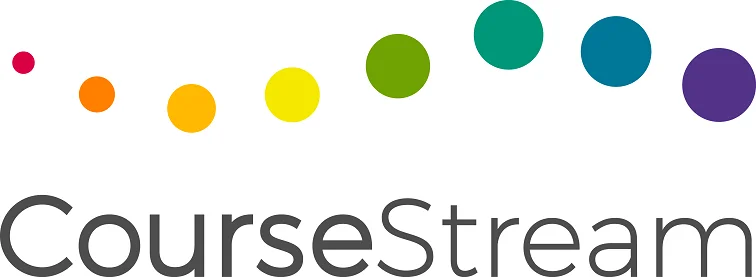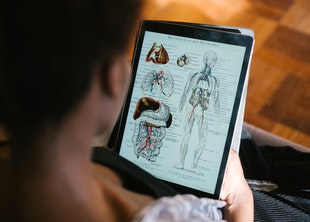Why Study this Cardiorespiratory Performance Course?
Do you want to understand how oxygen is supplied to the muscles and organs of the body? Do you want to learn more about blood and gas transport? This online cardiorespiratory performance course will teach you that and more!
This course will teach you everything you need to know to understand the cardio-respiratory system, such as how blood affects humans, how gas is being exchanged and transported, what controls the cardio-respiratory system and the several diseases associated with it, and more.
Human Biology Correspondence or Online Learning Course
- Learn about the human cardio-respiratory system.
- understand topics such as blood, blood pressure, pulmonary ventilation, gas exchange and transport, blood flow and gas transport,
- understand cardiorespiratory control, cardiorespiratory disease and more.
- essential for the fitness trainer, health care professional, nutrition counsellor
- learn about your own body and improve your health
Prerequisite: Human Biology II (or equivalent)
Course Outline
There are 7 lessons as follows:
1. The Science of Blood
-
The Functions of Blood
-
Components of Blood
-
Blood Typing
-
Blood Cells
- Hematopoiesis; Erythropoiesis, Leukopoiesis, Lymphopoiesis
-
Blood Cell function; Erythrocytes, Neutrophils, Eosinophils, Basophils, Thrombocytes etc
- The Immune Response
- Haemostasis
- Clotting Mechanism
- Haemodynamics
- Circulatory Networks
- Blood Testing
- Full Blood Count
- Cross Matching
- Blood Cultures
- Arterial Blood Gas
- Biochemical and Metabolic Tests
- INR
- Blood Disorders; Red & White Blood disorders, Blood Clotting, Poisoning
- Lymphatic System
2. Blood Pressure
-
Factors Affecting Blood Pressure; cardiac output, peripheral resistance, blood volume
-
How Blood Pressure is Measured
-
The Cardiac Cycle
-
Heart Muscle Cell Contraction
- Electrical Control of the Heart Muscle Cells; Sinoatrial Node (SA Node), Atrioventricular Node (AV Node), Bundle of His (Atrioventricular bundle), Purkinje Fibers
- Blood Pressure Problems
-
Systolic hypertension, Diastolic hypertension and Hypertension
-
Distribution of Blood Flow
-
Regulating Heart Rate and Blood Pressure
-
Sensors
- Problems with Heart Rate; variations, and other conditions including Myocardial infarction and Cardiac Tamponade
- Electrocardiograms and their Interpretation
3. Pulmonary Ventilation
-
The Respiratory System
-
Respiratory Epithelium
-
The Lungs
-
Lung Anatomy
-
Alveoli
-
Airway Anatomy
- Nasal and oral cavities
- Pharynx
- Epiglottis
- Larynx
- Trachea
- Bronchi and bronchioles
-
Physiology of Breathing; Equilibrium, Pressure, Inspiration, Expiration
-
Physiological Measures of Lung Capacity and Function; Total Lung Capacity, Tidal Volume, Vital Capacity, Forced Vital Capacity, IRV, ERV, Functional Residual Capacity, MV, VO2 Max, etc
-
Effect of Exercise on Pulmonary Ventilation
4. Gas Exchange & Transport
-
Gas Exchange in the Human Body
-
External Respiration
-
Oxygen Transport
-
Internal Respiration
-
Hemoglobin
-
Carbon Dioxide Transport
-
Biochemistry of Gas Exchange; Boyle’s Law, Charles’ Law, Dalton’s Law, Henry’s Law, etc
-
Factors Affecting Gas Exchange; Partial pressure Gradients, Gas Solubility, Membrane thickness, etc
-
Compliance
-
Respiratory Control
5. Blood Flow & Gas Transport
-
Blood Flow; Volume, Target
-
Gas Transport
-
Arterial-Alveolar Gradient
-
Oxygen Transport
-
Factors Effecting Oxygen Release by Hemoglobin
-
The Bohr-Haldane Effect
-
Cellular Respiration
-
Energy Production; anaerobic and aerobic
-
Blood Flow During Exercise and Rest
6. Cardio Respiratory Control
-
Cardio Respiratory Control and the Nervous System
-
Input Sensors
-
The CV Centre
-
High Brain Centres
-
Baroreceptors and Chemoreceptors
-
The Respiratory Centre
-
Starling’s Law
-
Capillaries
-
The Control of Heart and Lungs During Exercise
7. Cardio Respiratory Disease
-
Cardiac Diseases and Injuries
-
Chronic Heart Failure
-
Congestive Heart Failure
-
Myocardial Infarction and Ischemia
-
Cardiovascular Diseases
- Coronary Heart Disease
- Atherosclerosis
- Aneurysm
- Vasculitis
- Venous thrombosis
- Varicose veins
-
Causes of Cardiovascular Disease; lifestyle, diet, obesity, genetics, smoking, hypertension, etc
-
Respiratory Disease
-
Asthma
-
Chronic Obstructive Pulmonary Disease
- Emphysema
- Cystic Fibrosis (CF)
-
Effects of Cardio Pulmonary Disease
Enrol Now
- Experienced Tutor support
- Certificate sent to you
- Online study (Printed notes available)
- Self paced - no set timetable
- 12 months to complete course
From: $25.00 / week for 26 weeks
Get a Free Info Pack!











